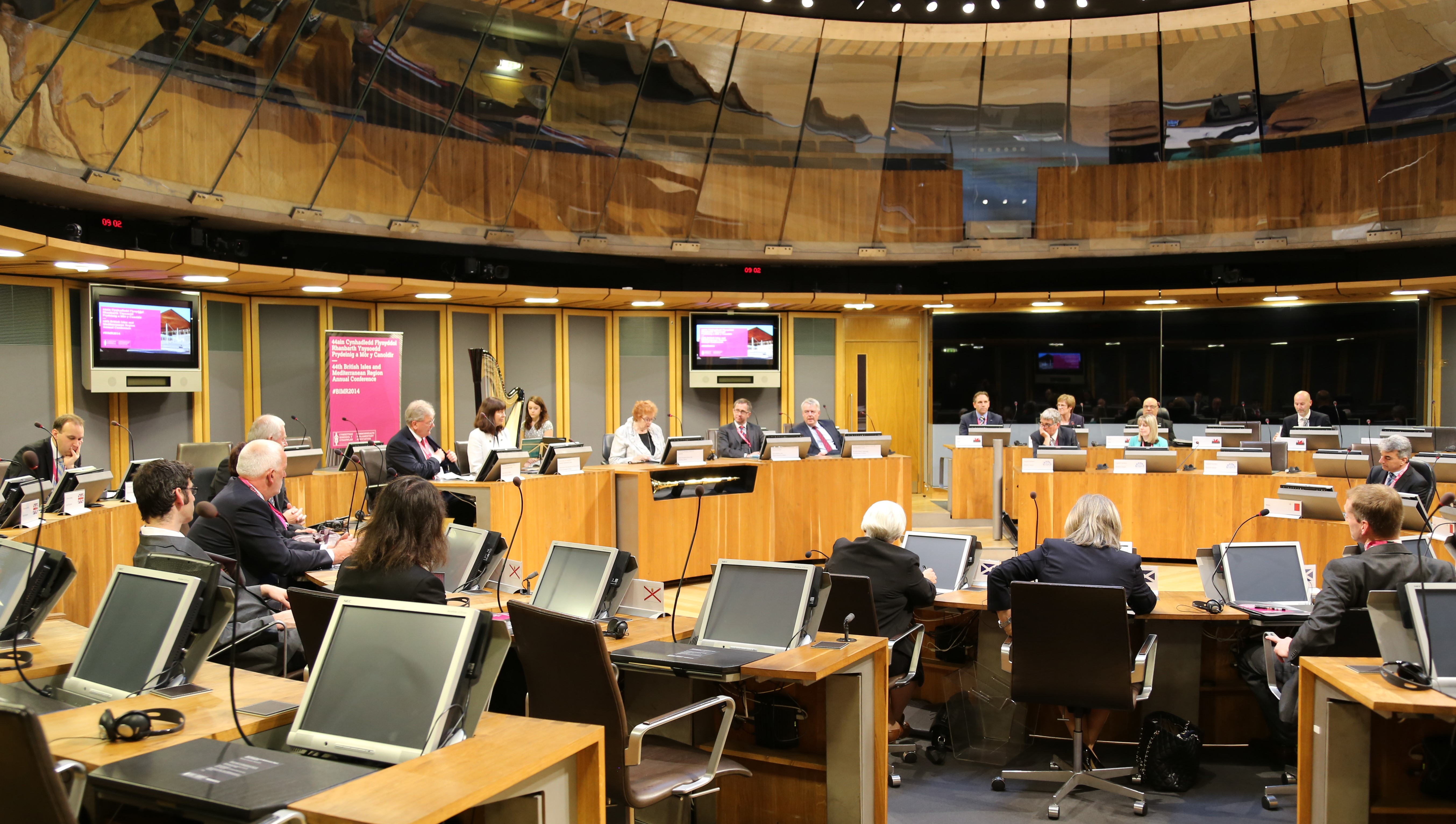Article by Philippa Watkins, National Assembly for Wales Research Service
 The Assembly's Health and Social Care Committee published its report on the general principles of the Public Health (Wales) Bill on 30 November 2015. The Stage 1 whole Assembly debate on the Bill will take place in Plenary on 8 December 2015. Most elements of the Bill have proved non-contentious. The chapters dealing with pharmaceutical services and provision of toilets for public use had broad support among stakeholders and Members of the Committee. Similarly, the proposal to prohibit the handing over of tobacco or nicotine products to under 18s was welcomed. The Committee also concluded that a national register of retailers of tobacco and nicotine products would be of benefit to the tobacco control agenda. The Committee has made a number of recommendations in the above areas aimed at strengthening the proposals. Special procedures and intimate piercing The Committee took evidence from a range of stakeholders on the proposal to create a mandatory licensing scheme for practitioners and businesses carrying out certain special procedures. The Committee agreed that there was sufficient risk of public health harm to support the need for a licensing scheme covering tattooing, piercing, acupuncture and electrolysis, as set out in the Bill. The Committee were concerned to hear about some more extreme body modification procedures (such as tongue splitting, branding, scarification and sub-dermal implants). It’s not known how commonly these types of procedures are carried out, but it was clear to the Committee that the potential for harm is significant. Particularly if, as some witnesses reported, such invasive procedures are undertaken by people with limited knowledge of anatomy or infection control, or ability to manage complications. The Committee was similarly concerned about the risk of harm from non-surgical cosmetic procedures if poorly administered (this includes procedures such as botox, dermal fillers, chemical peels etc.). There is a case, the Committee believes, for body modification procedures and non-surgical cosmetic procedures to be added to the Bill. The proposal to prohibit intimate piercing being carried out on under 16s received widespread support. The Committee heard significant concern around the risks of tongue piercing, and has welcomed the Minister’s subsequent commitment to include tongue piercing under the same age restriction. E-cigarettes So what of e-cigarettes? To inform its scrutiny of the Bill, the Committee has carried out a public survey as well as seeking written and oral evidence from a wide range of stakeholders. E-cigarette users themselves have fed in to the Committee’s scrutiny of the e-cigarette proposals, as have some of the UK’s leading experts on tobacco control and smoking cessation, including public health representatives, clinicians and academics. Some stakeholders supported the proposals to restrict the use of e-cigarettes in public places. However, the greater weight of evidence received by the Committee described the Welsh Government’s approach as over-precautionary; a disproportionate measure which fails to recognise the harm-reduction potential of e-cigarettes. Committee Members were unable to reach a consensus view. Will restricting the use of e-cigarettes contribute to the Bill’s aim of improving and protecting public health? Or could the proposals actually prove contrary to this aim? Some Members supported the proposed restriction, concerned about the lack of evidence on the longer-term public health effects of e-cigarette use, and the risk of undermining the progress made so far on reducing the prevalence and uptake of smoking. Other Members were unable to support the e-cigarette proposals, sharing the concerns of many stakeholders that not only is this not an evidence-based measure, but also that it may have a detrimental effect on public health by reducing the opportunity and incentive for smokers to switch to a much safer product. There is a danger, some believe, that by treating tobacco and e-cigarettes in the same way, this legislation will send out a message that they are equally harmful. Part of the difficulty the Committee has faced in coming to its conclusions is that e-cigarettes are still a relatively new product; whilst there is currently no evidence that e-cigarette use is likely to re-normalise smoking, neither is there evidence that it definitely won’t. The concern about re-normalisation is one of the Welsh Government’s key reasons for bringing forward the proposals to restrict e-cigarette use in public places, and this was a concern shared by more than half of Committee Members. At the same time, the Committee was less convinced about the potential for e-cigarettes to act as a gateway into tobacco smoking, or that their use in public places would undermine enforcement of the smoking ban. What happens now? The evidence and deliberations presented in the Committee’s report will inform the whole Assembly debate on 8 December. If the Assembly agrees to the general principles of the Bill, the Public Health (Wales) Bill will proceed to Stage 2. National Assembly for Wales Research Service - The Research Service provides impartial advice and briefing to support Assembly Members and Committees in their scrutiny, legislative and representative roles. Find out more
The Assembly's Health and Social Care Committee published its report on the general principles of the Public Health (Wales) Bill on 30 November 2015. The Stage 1 whole Assembly debate on the Bill will take place in Plenary on 8 December 2015. Most elements of the Bill have proved non-contentious. The chapters dealing with pharmaceutical services and provision of toilets for public use had broad support among stakeholders and Members of the Committee. Similarly, the proposal to prohibit the handing over of tobacco or nicotine products to under 18s was welcomed. The Committee also concluded that a national register of retailers of tobacco and nicotine products would be of benefit to the tobacco control agenda. The Committee has made a number of recommendations in the above areas aimed at strengthening the proposals. Special procedures and intimate piercing The Committee took evidence from a range of stakeholders on the proposal to create a mandatory licensing scheme for practitioners and businesses carrying out certain special procedures. The Committee agreed that there was sufficient risk of public health harm to support the need for a licensing scheme covering tattooing, piercing, acupuncture and electrolysis, as set out in the Bill. The Committee were concerned to hear about some more extreme body modification procedures (such as tongue splitting, branding, scarification and sub-dermal implants). It’s not known how commonly these types of procedures are carried out, but it was clear to the Committee that the potential for harm is significant. Particularly if, as some witnesses reported, such invasive procedures are undertaken by people with limited knowledge of anatomy or infection control, or ability to manage complications. The Committee was similarly concerned about the risk of harm from non-surgical cosmetic procedures if poorly administered (this includes procedures such as botox, dermal fillers, chemical peels etc.). There is a case, the Committee believes, for body modification procedures and non-surgical cosmetic procedures to be added to the Bill. The proposal to prohibit intimate piercing being carried out on under 16s received widespread support. The Committee heard significant concern around the risks of tongue piercing, and has welcomed the Minister’s subsequent commitment to include tongue piercing under the same age restriction. E-cigarettes So what of e-cigarettes? To inform its scrutiny of the Bill, the Committee has carried out a public survey as well as seeking written and oral evidence from a wide range of stakeholders. E-cigarette users themselves have fed in to the Committee’s scrutiny of the e-cigarette proposals, as have some of the UK’s leading experts on tobacco control and smoking cessation, including public health representatives, clinicians and academics. Some stakeholders supported the proposals to restrict the use of e-cigarettes in public places. However, the greater weight of evidence received by the Committee described the Welsh Government’s approach as over-precautionary; a disproportionate measure which fails to recognise the harm-reduction potential of e-cigarettes. Committee Members were unable to reach a consensus view. Will restricting the use of e-cigarettes contribute to the Bill’s aim of improving and protecting public health? Or could the proposals actually prove contrary to this aim? Some Members supported the proposed restriction, concerned about the lack of evidence on the longer-term public health effects of e-cigarette use, and the risk of undermining the progress made so far on reducing the prevalence and uptake of smoking. Other Members were unable to support the e-cigarette proposals, sharing the concerns of many stakeholders that not only is this not an evidence-based measure, but also that it may have a detrimental effect on public health by reducing the opportunity and incentive for smokers to switch to a much safer product. There is a danger, some believe, that by treating tobacco and e-cigarettes in the same way, this legislation will send out a message that they are equally harmful. Part of the difficulty the Committee has faced in coming to its conclusions is that e-cigarettes are still a relatively new product; whilst there is currently no evidence that e-cigarette use is likely to re-normalise smoking, neither is there evidence that it definitely won’t. The concern about re-normalisation is one of the Welsh Government’s key reasons for bringing forward the proposals to restrict e-cigarette use in public places, and this was a concern shared by more than half of Committee Members. At the same time, the Committee was less convinced about the potential for e-cigarettes to act as a gateway into tobacco smoking, or that their use in public places would undermine enforcement of the smoking ban. What happens now? The evidence and deliberations presented in the Committee’s report will inform the whole Assembly debate on 8 December. If the Assembly agrees to the general principles of the Bill, the Public Health (Wales) Bill will proceed to Stage 2. National Assembly for Wales Research Service - The Research Service provides impartial advice and briefing to support Assembly Members and Committees in their scrutiny, legislative and representative roles. Find out more






